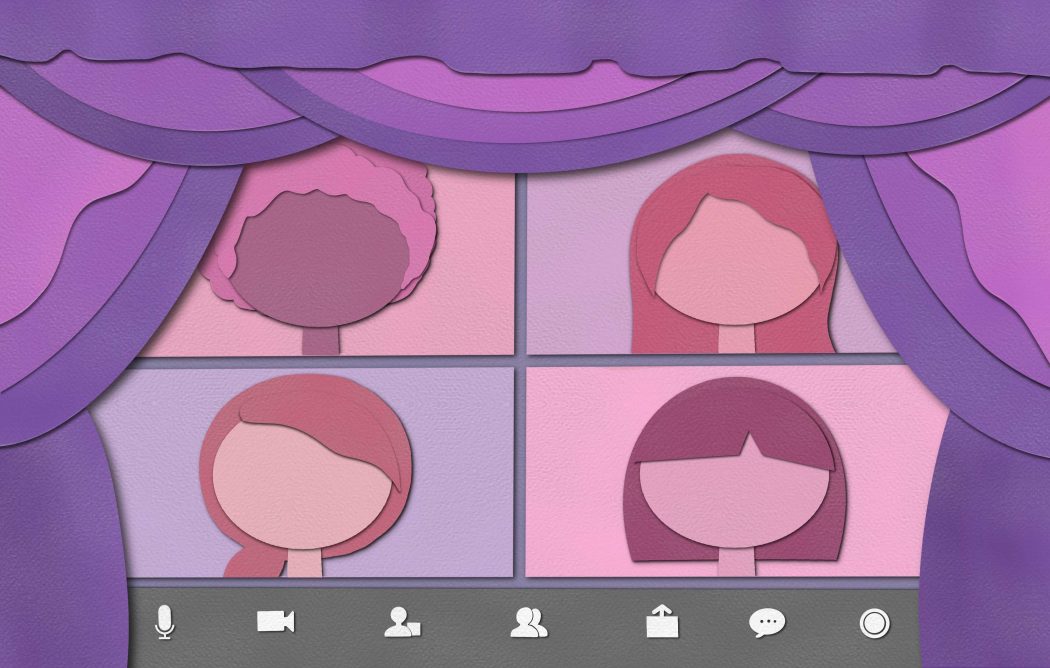In the world of theatre, there is a saying that goes, “The show must go on.” But what do you do when you’re stuck in the middle of a pandemic, where the only show that most of us can watch is on our laptops? Montreal students and theatre professionals alike are left asking themselves this question as we enter an uncharted and uncertain time in theatre history.
When the pandemic hit, Broadway was one of the first major industries to abruptly close its doors. Seven months later, the closure is projected to remain until at least May 2021. While many professional sports have resumed their activities, albeit with a new reality of bubbles and empty stadiums, the theatre industry is struggling to make ends meet.
Armorer said that having to postpone what they were planning for the Grande Acts of Theatre Initiative felt like “being kicked while you’re down.”
Between waves of the Coronavirus, it looked like Montreal’s theatre scene had found a moment of respite. As the weather warmed in the summer, case numbers dropped and restrictions loosened. Many Montreal theatres jumped on the opportunity to safely share and create performances for audiences in person. Centaur Theatre in Old Port spent the summer preparing for the fall theatre season by creating The Portico Project, a series of short plays presented outside of their historic theatre located in the Old Stock Exchange building. They opened on September 24, but they were forced to shut down in the middle of their run because of the province’s announcement that Quebec would return to the red zone.
Professor Erin Hurley of the English Department at McGill, and Anaïs Lépine-Lopez, president of the Quebec Studies Student Association at McGill, hosted a virtual roundtable discussion with artistic directors of Montreal theatres on October 24. Eda Holmes, artistic director of Centaur Theatre, shared her thoughts on the current theatre scene in Montreal and the struggles creators are facing. She said, “each time you come up with an idea and think this will be the thing we do for now, it changes, and it changes again.” Jean-Simon Traversy, artistic director of Duceppe, and Quincy Armorer, artistic director of Black Theatre Workshop, were also helming shows that were impacted by the implementation of red zone restrictions. Armorer said that having to postpone what they were planning for the Grande Acts of Theatre Initiative felt like “being kicked while you’re down.”
Concordia performance creation student Patrick Dale also feels the limits of theatre during the pandemic. Before the virus hit, the third-year student was supposed to direct and choreograph the Arts Undergraduate Theatre Society’s (AUTS) 15th annual musical production at McGill. For those unfamiliar, the AUTS is a student-led organization that mounts a high calibre musical each winter term in McGill’s Moyse Hall. The productions are open to university students across Montreal, so the AUTS always attracts a large cast, crew, band, and of course, audience from various schools in the city. The plans for this year’s production of A Chorus Line were just getting started when the pandemic made the future of the coming school year uncertain. Protocols on McGill extracurriculars were vague, and Dale said “We were in the dark.” AUTS was helpful to them in giving as much guidance and support as possible.
Dale expressed that one of the hardest things about cancelling the show was the loss of the creative outlet and community that doing theatre on campus provides for students.
Nonetheless, the team at AUTS spent the summer planning and preparing for the safest way to put on the show, assuming that some restrictions would be lifted by autumn. With auditions underway and a rehearsal plan set in place in early September, the AUTS felt prepared for anything that could come their way. However, Dale notes at a production meeting halfway through the month that it became clear that with growing numbers of COVID-19 cases on campus, “there were more concerns and problems than viable solutions.” He said they weighed the options of switching to a smaller musical, but with all of the costs to put on a show, and the known risk that they could have to cancel it in the future, the best choice for them was to cancel A Chorus Line. Dale expressed that one of the hardest things about cancelling the show was the loss of the creative outlet and community that doing theatre on campus provides for students. McGill lacks a fine arts program, so extracurricular opportunities like AUTS are often the only organized way for students to pursue their artistic passions on campus.
Even the theatre studies program in the English Department, the only academic program where students can study acting and directing, is also struggling to adapt. Professor Myrna Wyatt Selkirk, who teaches acting and directing, has modified her classes for Zoom. She said, “It will never ever be as good as being together in the same space, but my students have embraced the experiment.” Nevertheless, the future of the department’s productions is uncertain. She noted that “zero productions have been approved for live performances with a live audience at McGill” and so “it’s not possible to know what will happen.” She is currently petitioning to have one of her smaller classes taught in the theatre with social distancing and mandatory masks enforced.
The AUTS and other student organizations alike are brainstorming ways to engage students online. Indeed, some groups at McGill have been able to adapt to the constraints of the pandemic. Players’ Theatre, an independent student theatre serving the McGill and Montreal community, mounted two plays during the fall semester. Anne Beebe, a U2 psychology major, spoke about her experience as a stage manager and audio editor for one of the plays, Life is a Dream. The play was originally set to be a live, outdoor performance, but the return to the red zone forced the company to broadcast it as a “radio play” over Zoom. She said it “was a good challenge” and that she’s grateful “to have been able to have a creative outlet and space in the midst of the pandemic and school.”
For Dale, the challenge will be creating opportunities that fit AUTS’s brand and will appeal to their audiences. Holmes further emphasized the importance of remaining connected to their roots as theatres, especially the aspects of being live and not pre-controlled by editing. Yet, for everyone, the reality that pre-recorded shows may be the only option is guiding discussions about how to move forward.
Sylvain Bélanger, artistic director of Centre de Théâtre Aujourd’hui, expressed grappling with the idea of creating filmed theatre. The pandemic reinforced the need for human experience in theatre, and filming live performance feels antithetical to that goal for him. As a student, Dale questions the definition of theatre during this new time. He considered, “What is theatre, really? Where is the line between filmed theatre and film? What does [theatre] become?”
Theatre is constantly changing, and now is the time to harness our creativity to ensure that theatre thrives, no matter what restrictions befall the industry.
Yet despite the lost jobs, the cancelled shows, and the empty audiences, the pandemic has also brought some positive changes to Montreal’s theatre scene. Holmes sees this as an opportunity to “rethink what it means to make a piece of theatre.” Without the commercial aspects of making theatre that formerly overwhelmed the process, she says theatres are now “[engaging] with the idea that there are voices missing from this conversation and missing from the stage. A chance to build a platform for those voices is an opportunity that we have to take advantage of.” Traversy highlighted that the pandemic has afforded theatre creators the opportunity to create “little moments” online. She shared how these moments can be greatly beneficial to our mental health right now, which can feel at a dire low.
At the end of the round table, all four artistic directors agreed upon the idea that young people are the future of theatre right now. Their message to us? Don’t stop. It is in the hands of youth to continue believing in theatre and committing ourselves, and our knowledge of technology, to the theatre we want to see in the future. Theatre is constantly changing, and now is the time to harness our creativity to ensure that theatre thrives, no matter what restrictions befall the industry. As Armorer said, “theatre is not dead and it’s not going to die.” Yet, the industry’s survival depends on if we will “be the wonderful community that we are and hold each other and lift each other.”








